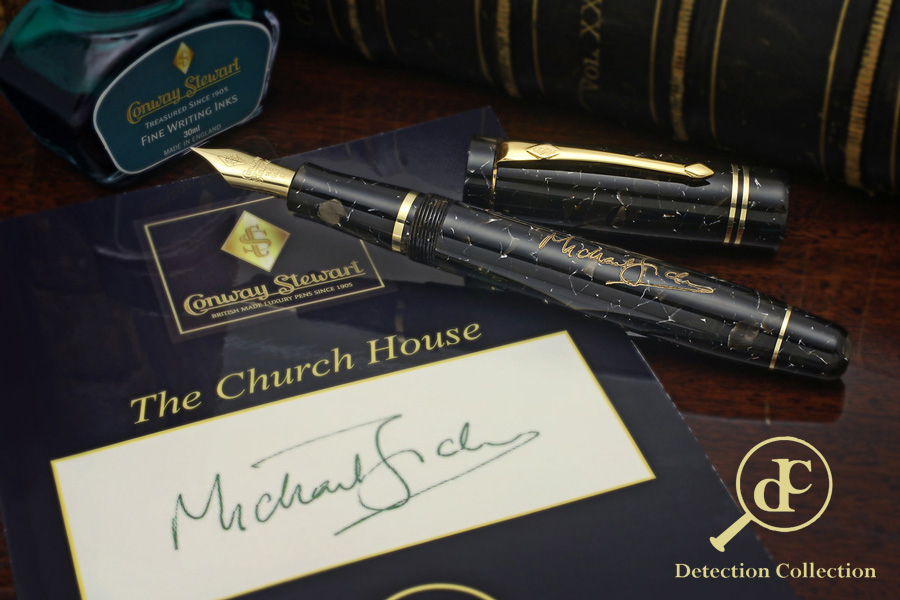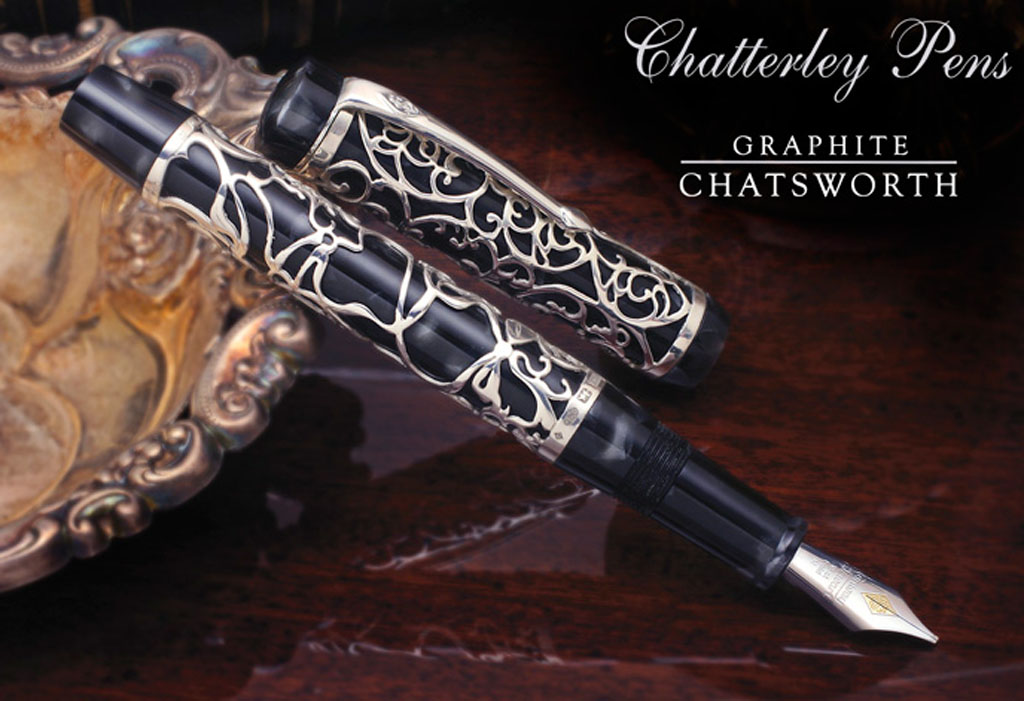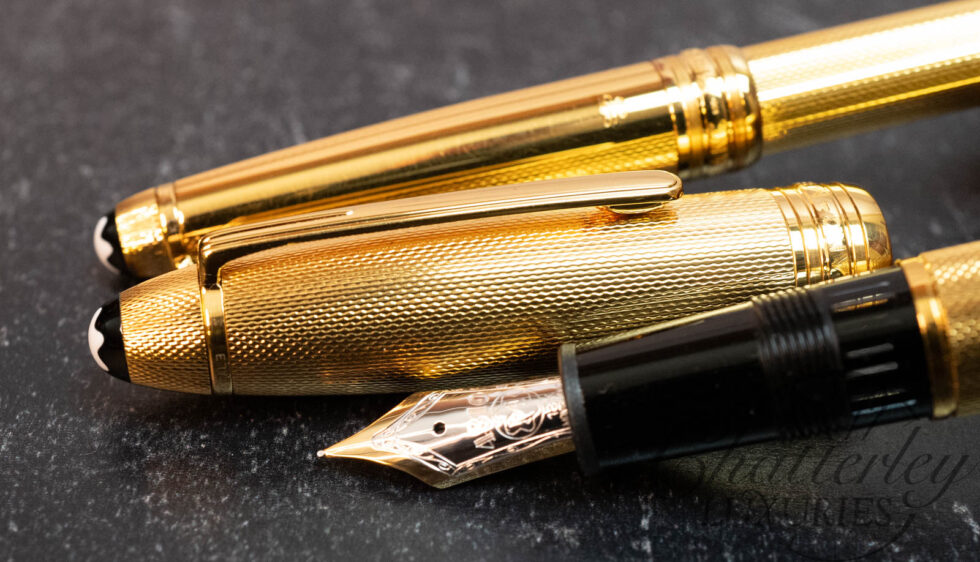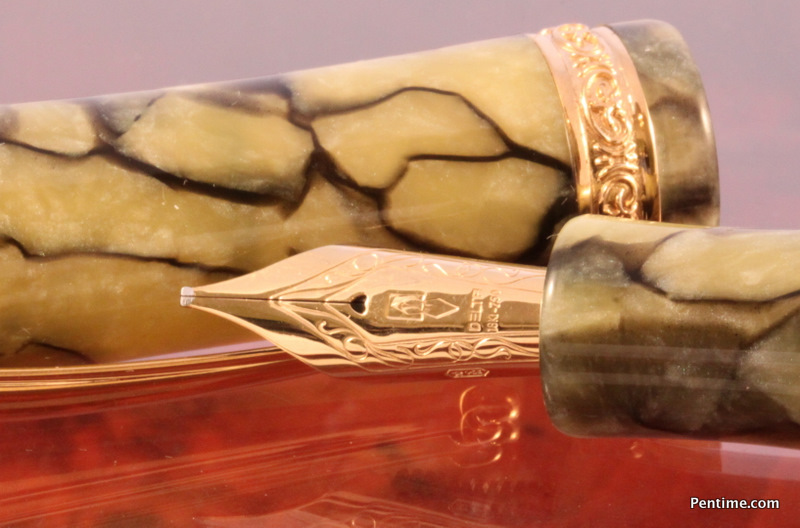Classic Pens CP6 Pelikan M1000 Marguerite Limited Edition Fountain Pen
This pen is pre-owned, but in perfect condition. Just has some Tarnish which is very normal for a Sterling Silver pen. It fills via Piston Filler and has a OBB 18c nib. It comes with box and papers.
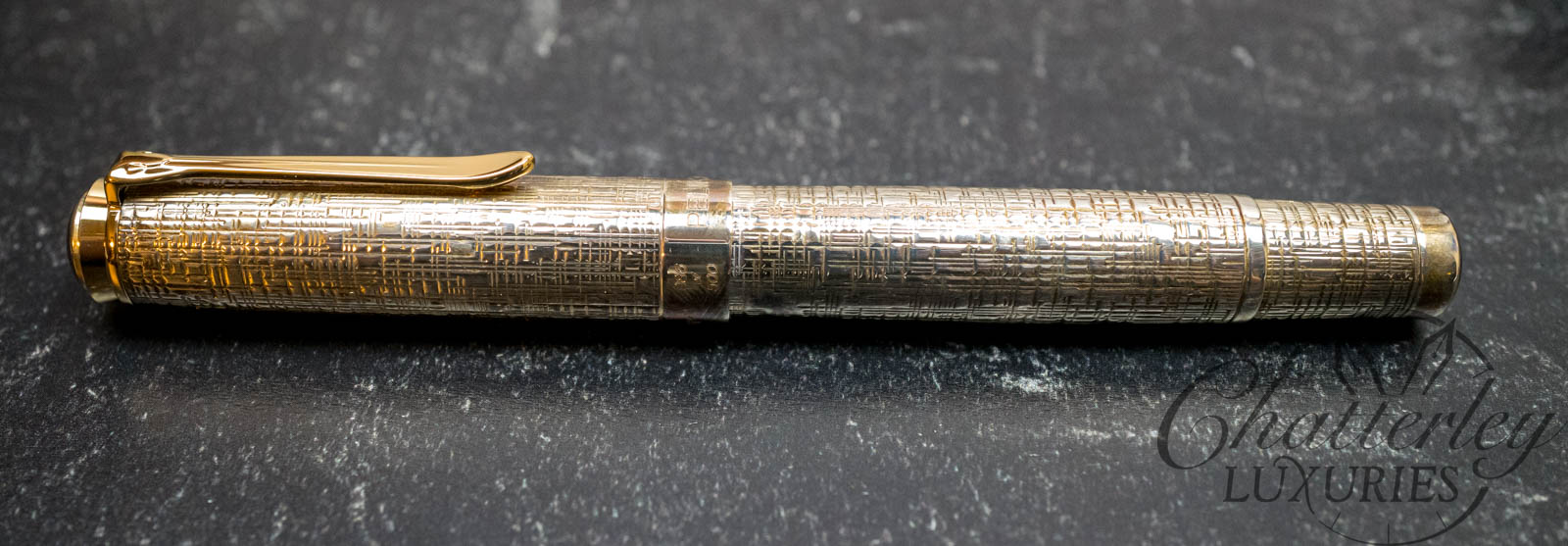
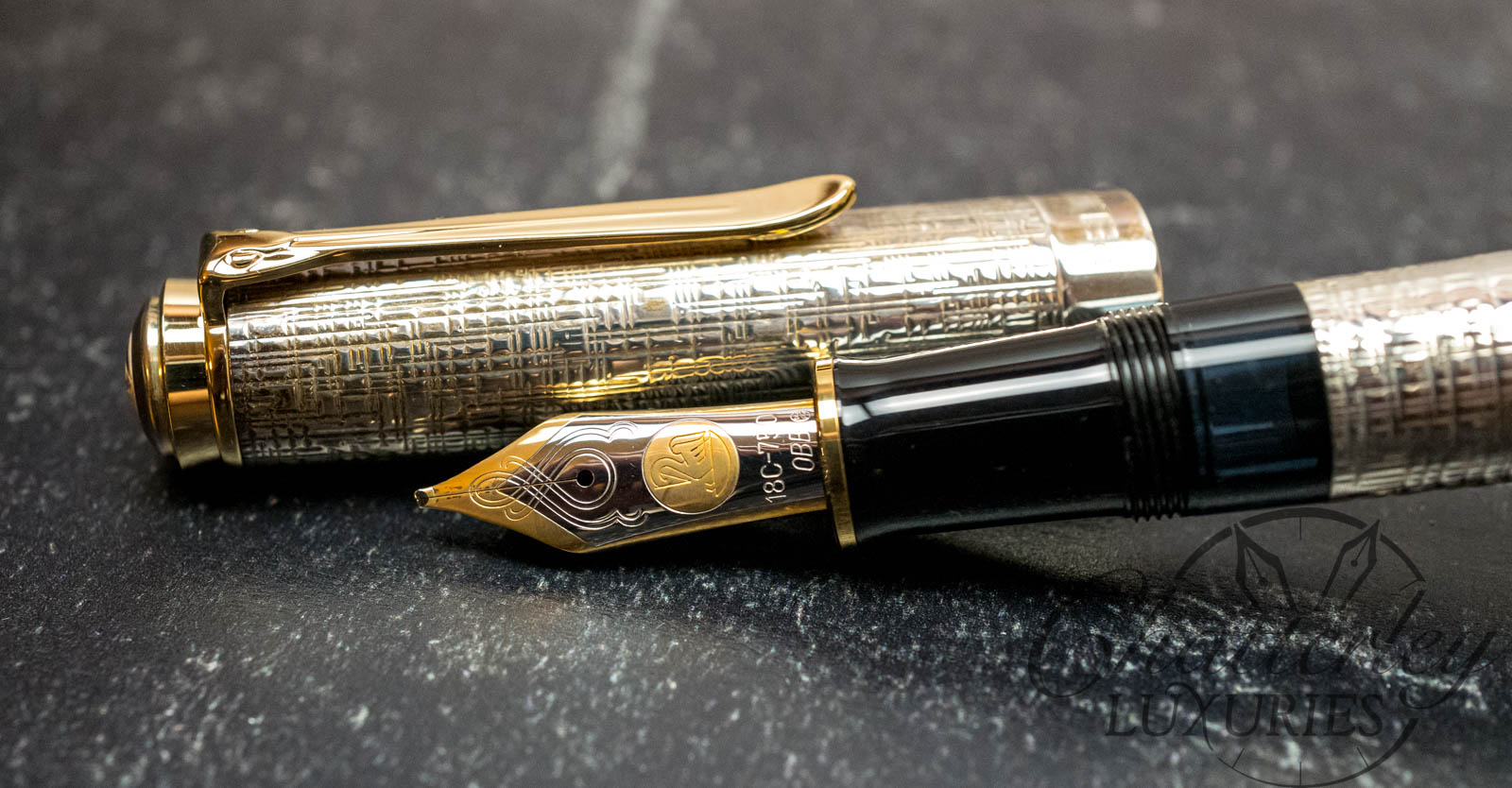
The sixth limited edition in the Classic Pens CP series is the CP6 Goethe Pens Marguerite and Charlotte. It was the fruit of the cooperation between Classic Pens, Pelikan and Murelli. The series was launched in 2002.
The theme chosen for the CP6 series is Goethe. The guilloche engravings of the two pens, Marguerite and Charlotte were inspired by his works, Faust and Werther.
In the 1800s, Weimar became the cultural center for Germany and later for Europe. The Weimar Republic started the movement “Sturm and Drang” (Romantic Movement) which launched European Romanticism. Literary figures in Europe like Byron in England, Pushkin in Russia and others followed this movement. Weimar became the center of Art, Music, and Literature.
Johann Wolfgang von Goethe
1749 – 1832
Johann Wolfgang von Goethe is widely recognized as the greatest writer of the German tradition. The romantic period in Germany of the late 18th and early 19th centuries is known as the age of Goethe.
His stature derives from a multiple of extraordinary qualities: his literary achievements as a lyric poet, novelist and dramatist; his significant contributions as a scientist (geologist, botanist, anatomist, physicist); as a critic and theorist of literature and of art; as a Statesman.
He was such an imposing personality that for the last 30 years of his life, he was Germany’s greatest cultural monument, serving as an object of Pilgrimage from all of Europe and even from the United States.
The writing of Faust spanned more than 60 years. The work is a unique record of Goethe’s personality, from youth to old age, in all its richness and diversity. The powerful work can be viewed as a depiction of the personal journey of Faust towards enlightenment. He makes a bet with the devil that he will be allowed to live as long as the devil fails to satisfy his striving for transcendence. Most significantly, Goethe makes the second half of part I into a love tragedy. Faust seduces Marguerite (Gretchen), an innocent young girl who embodies for him the transcendent ideal that he seeks.

